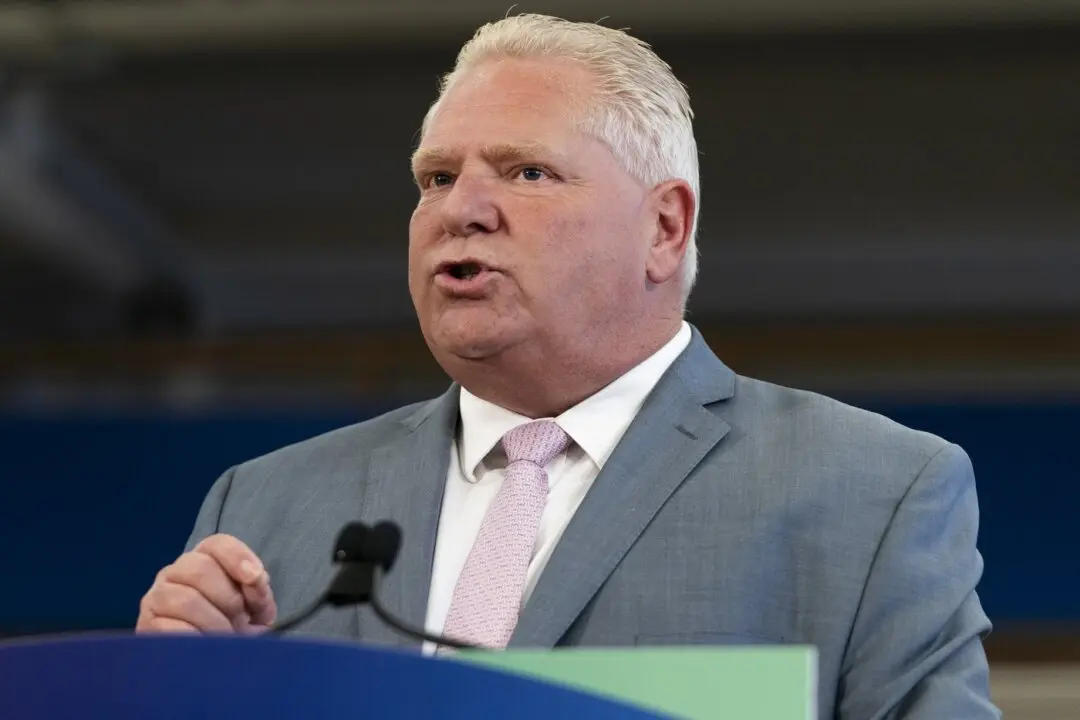Premier Doug Ford is defending his government’s decision to close nearly half of Ontario’s 23 supervised drug consumption facilities, calling them “the worst thing that could ever happen to a community.”
Ontario’s Ford Defends Consumption Site Closures, Calls Facilities the ‘Worst Thing’ to Happen to Communities

Ontario Premier Doug Ford delivers remarks at Lakeshore Collegiate Institute in Toronto, on Aug. 31, 2023. The Canadian Press/Spencer Colby




